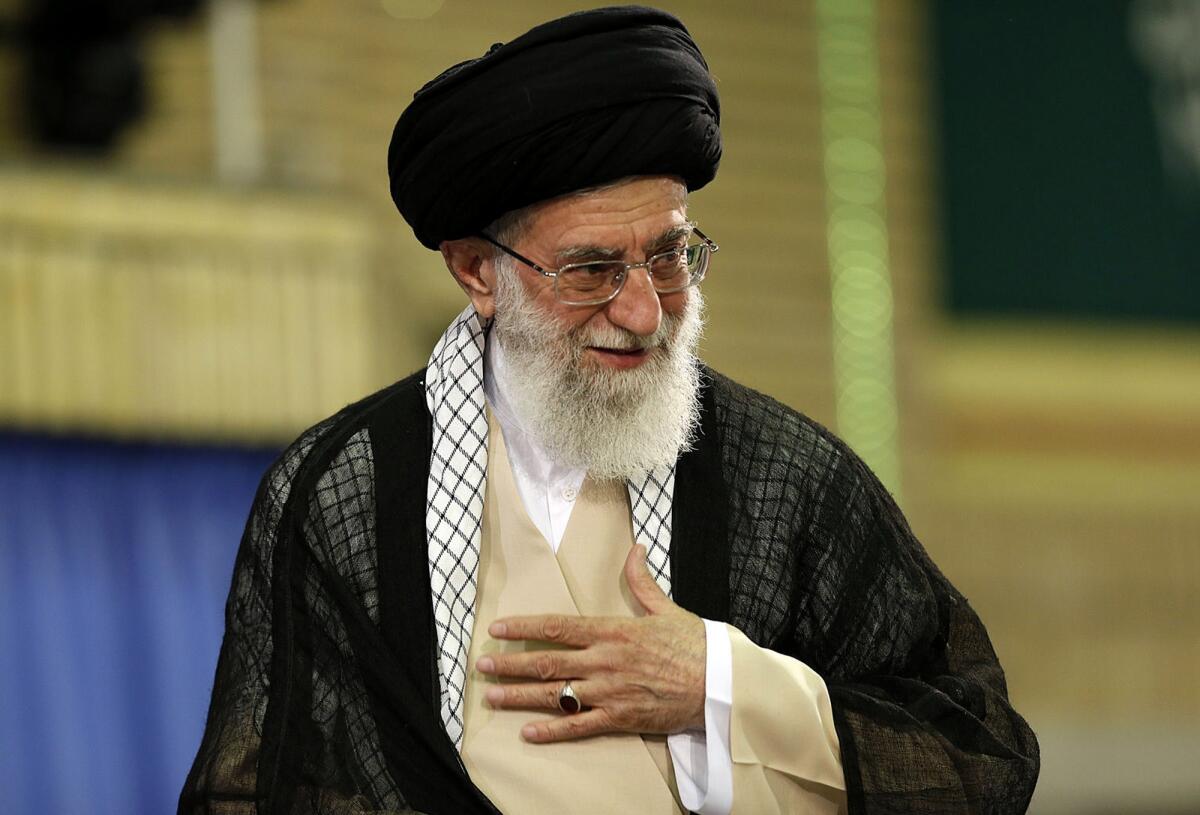No breakthrough yet at U.N. gathering on Iran nuclear talks

- Share via
Reporting from the United Nations — The latest round of talks over Iran’s nuclear program limped toward a close Friday without the breakthrough that many hoped could be delivered during the annual gathering in New York of the United Nations General Assembly.
With less than two months remaining before the talks’ deadline, it had been thought world leaders might make bold compromises that lower-level officials have so far been unable to deliver in seven months of regular meetings.
Instead, foreign ministers of the six major powers that are trying to negotiate a deal with Iran -- the U.S., Britain, China, France, Germany and Russia -- called off a planned group session. Diplomats quoted French Foreign Minister Laurent Fabius as saying the meeting was canceled because there were “no significant advances” to justify it.
Secretary of State John F. Kerry was still expected to meet during the day with his counterparts from Iran and the European Union, and it was possible that lower-level meetings would be held over the weekend.
An agreement would aim to limit Iran’s nuclear program to non-military uses in exchange for lifting Western sanctions that have obstructed its crucial oil sales and damaged its economy.
Some top Western and Iranian officials remained optimistic in public comments.
Wendy Sherman, the chief U.S. negotiator, told the Voice of America Persian service that the group was making progress, though “there are some very crucial decisions that need to be made.”
But privately, other diplomats said the group had been unable to move forward on core issues, starting with how much of its uranium-enrichment capacity Tehran will get to maintain. Iran wants to keep all 20,000 installed centrifuges and take steps that will allow it to increase its capacity tenfold by 2021.
Some fear it is unlikely, in the absence of a breakthrough this week, that lower-level officials will be able over the next two months to resolve disagreements they have debated repeatedly since January.
Even if lower-level negotiators can overcome the major hurdles, it is unclear that they will have time to resolve the many complicated secondary issues that must by addressed by the Nov. 24 deadline. The negotiators already had given themselves a four-month extension on their original deadline.
“This week is our big chance,” a Western diplomat said earlier in the week.
Some diplomats expressed frustration that in dealing with the Iranian team, led by Foreign Minister Mohammad Javad Zarif, they were not bargaining directly with the person who will be making the ultimate choices: Iranian Supreme Leader Ayatollah Ali Khamenei.
There still is a chance, some say, that Iran is waiting until the final hours of the negotiations to see what concessions it can wring from Western powers eager to avoid a war over the issue. But the optimists in the group are dwindling.
While officials insisted that the discussions have yielded some new ideas, there is less agreement now than there was in July on some issues, such as how Iran will limit output from the heavy-water nuclear facility at Arak. The two sides disagree not only on sticky political issues, but also on matters of basic nuclear physics, said one participant in the negotiations.
At Friday prayers in Tehran, a crowd heard Ayatollah Kazem Sadighi lay out the details of the nuclear negotiation, then chanted: “Nuclear energy is our inalienable right!”
Special correspondent Ramin Mostaghim in Tehran contributed to this report.
Follow @richtpau on Twitter for developments in the Iranian nuclear talks
More to Read
Sign up for Essential California
The most important California stories and recommendations in your inbox every morning.
You may occasionally receive promotional content from the Los Angeles Times.














